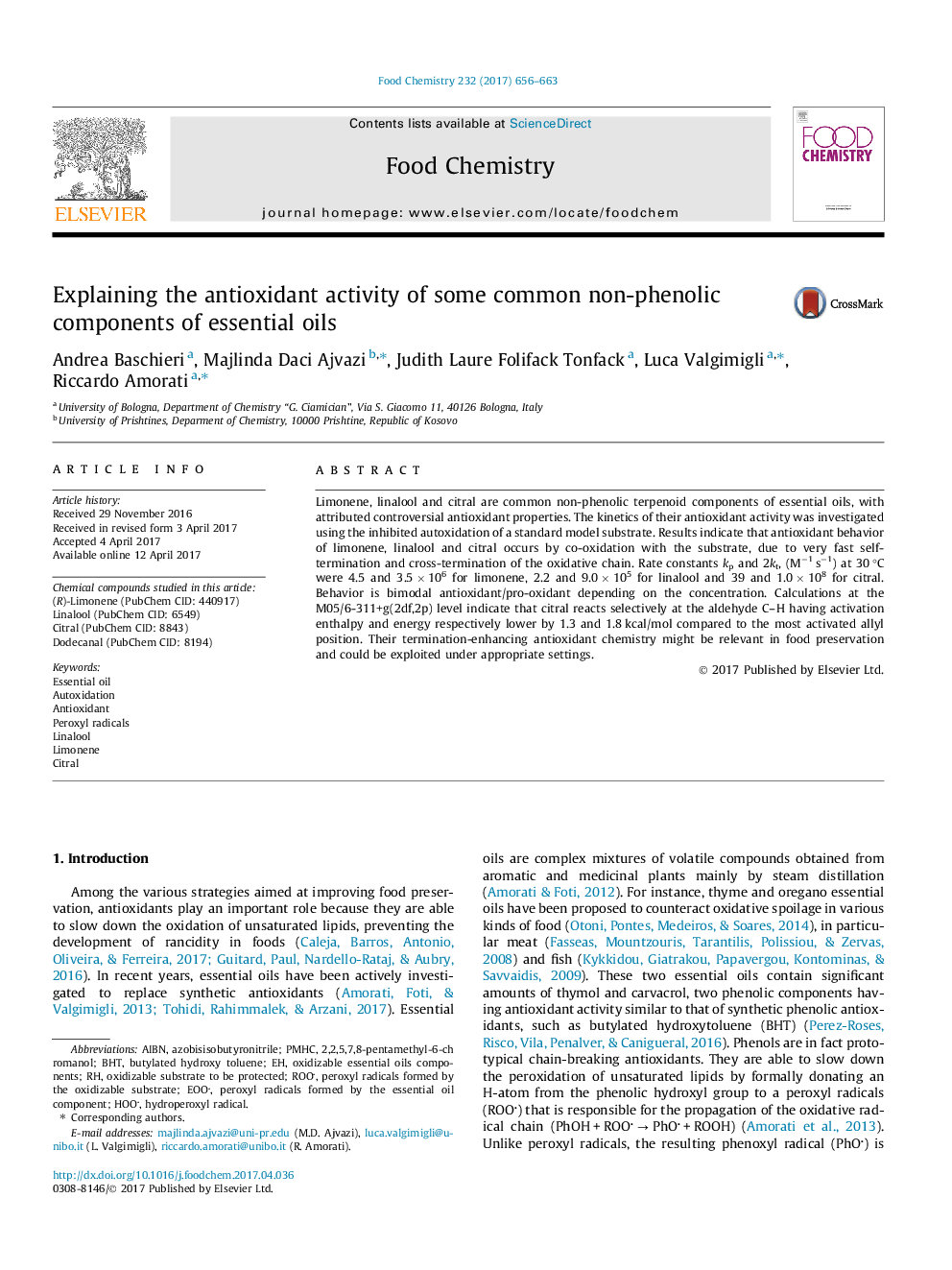| Article ID | Journal | Published Year | Pages | File Type |
|---|---|---|---|---|
| 5133447 | Food Chemistry | 2017 | 8 Pages |
â¢The antioxidant activity of limonene, linalool and citral was investigated.â¢The three EO components act as termination-enhancing antioxidants.â¢Activity increases with the concentration up to a limit value, then it decreases.â¢The three EO components become pro-oxidant above a critical concentration.â¢Their potential in food protection versus phenolic antioxidants is discussed.
Limonene, linalool and citral are common non-phenolic terpenoid components of essential oils, with attributed controversial antioxidant properties. The kinetics of their antioxidant activity was investigated using the inhibited autoxidation of a standard model substrate. Results indicate that antioxidant behavior of limonene, linalool and citral occurs by co-oxidation with the substrate, due to very fast self-termination and cross-termination of the oxidative chain. Rate constants kp and 2kt, (Mâ1 sâ1) at 30 °C were 4.5 and 3.5 Ã 106 for limonene, 2.2 and 9.0 Ã 105 for linalool and 39 and 1.0 Ã 108 for citral. Behavior is bimodal antioxidant/pro-oxidant depending on the concentration. Calculations at the M05/6-311+g(2df,2p) level indicate that citral reacts selectively at the aldehyde C-H having activation enthalpy and energy respectively lower by 1.3 and 1.8 kcal/mol compared to the most activated allyl position. Their termination-enhancing antioxidant chemistry might be relevant in food preservation and could be exploited under appropriate settings.
